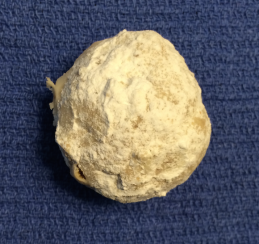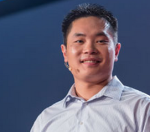David McRaney's Blog, page 29
July 3, 2015
YANSS 053 – Defeating learned helplessness in the classroom using computer-assisted adaptive learning
Can a new computer-assisted teaching program rid us of the cognitive errors that lead to students believing they suck at math or just aren’t cut out to study science? According to Ulrik Christensen, senior fellow of digital learning at McGraw-Hill Education, yes it can.
Most students often don’t actually suck at math or science, he said, but they come to believe they do because of a one-size-fits-all teaching environment that then administers poorly constructed tests that emphasize a binary, pass or fail method of delivering feedback. According to Ulrik, McGraw-Hill’s new LearnSmart program solves these problems by adjusting the presentation and feedback of the course material differently for each individual learner.
 “It granularly molds the curriculum around the student,” said Ulrik, describing what the company is calling computer-assisted adaptive learning, a sort of A.I. virtual teacher and coach that meticulously analyzes how each student learns and then breaks apart and alters the course material to match the kind of brain that person has, delivering it in bits and pieces that slowly build up to a holistic understanding of the material.
“It granularly molds the curriculum around the student,” said Ulrik, describing what the company is calling computer-assisted adaptive learning, a sort of A.I. virtual teacher and coach that meticulously analyzes how each student learns and then breaks apart and alters the course material to match the kind of brain that person has, delivering it in bits and pieces that slowly build up to a holistic understanding of the material.
Christensen is touring the country giving lectures and making media appearances to help promote his company’s new adaptive learning tools, and in this episode of the You Are Not So Smart Podcast he stops by to explain how programs first created to assist would-be doctors make it through medical school with a deep understanding and mastery of the material are now being used to prevent learned helplessness and many other cognitive errors that sabotage the learning process from kindergarten to graduation.

Download – iTunes – Stitcher – RSS – Soundcloud
This episode is brought to you by The Great Courses. Get 80 percent off Behavioral Economics: When Psychology and Economics Collide taught by Professor Scott Huettel along with many other fantastic lecture series by visiting this link and ordering today!
This episode is sponsored by Wealthfront, the automated investment
service that makes it easy to invest your money the right way. Visit this link to to get your first $10,000 managed for free.
Support the show directly by becoming a patron! Get episodes one-day-early and ad-free. Head over to the YANSS Patreon Page for more details.

After the interview, I discuss a news story about how people suffering from schizophrenia in different cultures hear different kinds of voices.
 In every episode, after I read a bit of self delusion news, I taste a cookie baked from a recipe sent in by a listener/reader. That listener/reader wins a signed copy of my new book, “You Are Now Less Dumb,” and I post the recipe on the YANSS Pinterest page. This episode’s winner is Benjamin Dow who submitted a recipe for Pecan Puffs. Send your own recipes to david {at} youarenotsosmart.com.
In every episode, after I read a bit of self delusion news, I taste a cookie baked from a recipe sent in by a listener/reader. That listener/reader wins a signed copy of my new book, “You Are Now Less Dumb,” and I post the recipe on the YANSS Pinterest page. This episode’s winner is Benjamin Dow who submitted a recipe for Pecan Puffs. Send your own recipes to david {at} youarenotsosmart.com.
Links and Sources
Download – iTunes – Stitcher – RSS – Soundcloud
When Children Fail in School Part Two: Teaching Strategies for Learned Helpless Students
Learned Helplessness: Balancing Teacher Expectations and Student Self-esteem

June 24, 2015
YANSS 052 – How we learn and unlearn to be helpless
In the late 1960s, psychologist Martin Seligman was a graduate student working on an unexplored aspect of behaviorism.
Psychology had already tapped into the power of rewards and punishments to shape behavior, and conditioning as a whole was coming into sharp focus, but Seligman and his colleagues wondered if learning in this way could be sped up through preparation.
You’ve likely seen this idea portrayed in movies. In the Karate Kid, for instance, our hero spends weeks sanding the floors and waxing the car of his sensei thinking it is all some kind of endurance and frustration test to see if is willing to stick around and learn sweet martial arts moves. When Mr. Miyagi finally started teaching him how to block punches and kicks, Daniel-san was able to learn those techniques rapidly because all that boring, repetitive busywork had prepared his body to make similar motions.
Seligman wondered if an animal could be prepared to learn something before it actually experienced the learning process. The hypothesis was that if you prepared an animal ahead of time, it would learn faster than if you had not. To explore this, his team did a sort of Pavlovian exercise in which they played a tone and then shocked dogs with electricity so that those animals would learn to connect the tone to the experience. The idea was that in the future those dogs could be conditioned more easily than dogs that had never been taught to fear electric shocks after hearing a sound. This is, of course, not something that would happen in a modern lab. Psychology is a lot less cruel and creepy now. But be warned, the next stage was even more more cruel and more creepy.

Download – iTunes – Stitcher – RSS – Soundcloud
This episode is brought to you by The Great Courses. Get 80 percent off Behavioral Economics: When Psychology and Economics Collide taught by Professor Scott Huettel along with many other fantastic lecture series by visiting this link and ordering today!
This episode is also brought to you by QuickBooks Self-Employed. It helps separate your business and personal expenses, so you can quickly track what you spent for work, and what you spent on yourself. Try QuickBooks Self-Employed and receive fifty percent off at TrySelfEmployed.com/sosmart.
smart.
Support the show directly by becoming a patron! Get episodes one-day-early and ad-free. Head over to the YANSS Patreon Page for more details.

The scientists then set up an enclosure called a shuttle box. The floor on both sides of a shuttle box can become electrified independently, and between the two sides there is a short wall. Normally, when a trainer plays a sound or turns on a light or shouts a command and then turns on the floor underneath an animal, that animal quickly figures out it can jump over the wall to the safe side of the box. Then the trainer produces another signal, shocks the other side, and the animal jumps back over. After just a few of these trials, most animals catch on and can be taught to jump over the wall on command without the shocks.
Seligman and his colleagues figured that dogs who had learned to expect an electric shock would learn at a faster pace than what they called “naive” dogs who had received no preparation, but that’s not what happened.
When his team put control dogs in the box, the ones that had never been trained or prepared in any way, they scrambled around frantically once the floor was turned on, and they eventually discovered that the other side of the room was always the place to go, and those dogs, after a few trials, easily learned to jump the wall. In fact, those dogs learned to wait patiently at the edge of the wall and immediately leap over the second they heard the signal. The other dogs, the ones that had already been conditioned by receiving electric shocks after a tone, didn’t learn faster as predicted – in fact, they didn’t learn at all. They didn’t even try to jump the wall. They just lay down, curled up on the floor, whined and took it. After hundreds of trials, 95 percent of the naive control dogs learned to jump the wall compared to just a quarter of the prepared ones.
Seligman and his team coined the term learned helplessness to explain what was happening; the prepared dogs couldn’t learn to escape a bad situation because there was previous knowledge in their heads blocking their brain’s path to that epiphany – they had learned to be helpless.
To be sure, Seligman’s team then designed a second set of experiments just to explore this newly discovered behavioral phenomenon. In the new experiment they prepared three groups of dogs. One group was placed in a harness for a little while, and then allowed to go free. That was the control group. The second group was placed in a harness in front of a lever. Those dogs then received electric shocks but eventually learned they could press the lever with their noses to end them. And the third group was placed in harness in front a lever, but the lever didn’t do anything at all. Instead, they were wired up to the second group of dogs, so whenever the second group got shocked, so did the third group. The third group had no control over when the shocks ended. Instead, they had to wait on the second group to figure it out. They not only learned the shocks came and went at random, but that the lever was a waste of time.
When Seligman put those three groups in the room with the electric floors and wall, groups one and two quickly learned to jump over the wall when the tone alerted them to incoming shocks. The third group did not. Instead, they curled up on the floor and whimpered. The previous experiment had taught them there was no point in trying to figure out a pattern. It was as if they thought bad things just happen sometimes, and there’s nothing you can do about it. Even though they could have escaped the pain, they didn’t even try.
In this episode of the You Are Not So Smart Podcast, we explore the implications of Seligman’s work when it comes to human behavior and the insights gained by psychology concerning learned helplessness in the decades since. Stuck in a bad situation, even when the prison doors are left wide open, we sometimes refuse to attempt escape. The evidence suggests that learned helplessness in people is connected to the pessimistic attributional style. In this episode, you’ll learn how it keeps people in bad jobs, poor health, terrible relationships, and awful circumstances despite how easy it might be to escape any one of those scenarios.
Best of all, you’ll learn how to defeat this psychological trap with advice from psychologists Jennifer Welbourne, who studies attributional styles in the workplace, and Kym Bennett who studies the effects of pessimism on health.

LINKS and SOURCES
Download – iTunes – Stitcher – RSS – Soundcloud
Charisse Nixon in the Classroom YouTube Video
Learned Helplessness: Theory and Evidence
Martin Seligman: Learned Helplessness
Seligman’s Learned Helplessness
Coping strategies in the workplace: Relationships with attributional style and job satisfaction
Ellen Langer Nursing Home Study
Photo: By Dudva (Own work) [CC BY-SA 3.0 (http://creativecommons.org/licenses/by-sa/3.0)%5D, via Wikimedia Commons

June 22, 2015
June 8, 2015
YANSS 051 – How Google uses behavioral science to make work suck less
From Dilbert to Fight Club to Joe Versus the Volcano, the world of white-collar drones and managerial ineptitude has long been a goldmine for parody.
The soul-sucking details are so ubiquitous and familiar that in addition to the British and the American versions of The Office, there are also versions in Chile, France, Germany, Israel and Sweden – there’s even a version just for French-Canadians. Each is shades apart, reflecting the differences in culture, but each is also broadly similar in making light of the drudgery and silliness that comes from spending your waking hours hovering near a computer and taking your lunch at your desk.
Download – iTunes – Stitcher – RSS – Soundcloud
This episode is brought to you by The Great Courses. Get 80 percent off The Art of Critical Decision Making taught by Award-Winning Professor Michael Robert along with many other fantastic lecture series by visiting this link and ordering today!
This episode is also brought to you by Loot Crate, the subscription box for the geek, gamer, and/or nerd in all of us. Head to this link and enter the code “smart” to save $3 on any new subscription!
Support the show directly by becoming a patron! Get episodes one-day-early and ad-free. Head over to the YANSS Patreon Page for more details.
“Works sucks.” That was the tagline for Office Space, the 1999 movie which over the years has become a shorthand, a handy reference sheet of inside jokes for use when talking about the oddly broken world of cubicle farms and corporate weirdness that so many of us have endured. In the movie, there is a scene early on in which our hero, Peter Gibbons, tells a psychologist that since he began working as a programmer every day of his life has been worse than the last. So, Peter explains, whenever you see him, you are seeing him on the worst day of his life.
I bring this up because In Lazlo Bock’s new book, Work Rules, he uses that very scene from Office Space to make a point about the lack of freedom in most workplaces. Workplaces around the world engage in “meaningless rituals and bureaucracy,” he says, because most businesses believe it is “faster and more efficient to just tell the team what to do and then make sure they deliver.” He then spends a good portion of the book explaining that this is very, very wrong. In fact, he explains that at Google, where he works, power has been deliberately shifted to workers and away from managers. Managers there can’t unilaterally hire, fire, rate performances, raise salaries, grant bonuses, promote, give out awards or even decide when a project is completed. Why? Because Google years ago moved to an evidence-based model of operations where opinions were cheap, and the evidence suggested there was a better way. To learn that, they did a lot a testing, a lot of experimentation, and gathered an enormous amount of data.
 In this episode of the You Are Not So Smart Podcast, we interview Lazlo Bock, head of People Operations at Google, the company’s massive and unique human resources division. In his new book, Bock explains how and why Google does what it does when it comes to everything internal, from perks and promoting to motivation and productivity. In the interview you’ll hear how the company combats confirmation bias, the halo effect, the Abilene paradox, pluralistic ignorance, survivorship bias, and more – all with a mix of behavioral science and Google’s immense power to test and re-test using its unique resources.
In this episode of the You Are Not So Smart Podcast, we interview Lazlo Bock, head of People Operations at Google, the company’s massive and unique human resources division. In his new book, Bock explains how and why Google does what it does when it comes to everything internal, from perks and promoting to motivation and productivity. In the interview you’ll hear how the company combats confirmation bias, the halo effect, the Abilene paradox, pluralistic ignorance, survivorship bias, and more – all with a mix of behavioral science and Google’s immense power to test and re-test using its unique resources.
After the interview, I discuss a news story about how journalists deal with the fallibility of eyewitness accounts.
In every episode, after I read a bit of self delusion news, I taste a cookie baked from a recipe sent in by a listener/reader. That listener/reader wins a signed copy of my book, “You Are Now Less Dumb,” and I post the recipe on the YANSS Pinterest page. This episode’s winner is Madalyn Radlauer who submitted a recipe for wife cookies. Send your own recipes to david {at} youarenotsosmart.com.
LINKS and SOURCES
Download – iTunes – Stitcher – RSS – Soundcloud
Witness Accounts in Midtown Hammer Attack Show the Power of False Memory

May 20, 2015
Study featured in episode 048 retracted
One of the authors of a study featured prominently in a recent episode of the You Are Not So Smart podcast has asked for a retraction after learning his co-author may have falsified most of the survey data included in the research.
Donald Green, a professor of political science at Columbia University, decided to retract the study after his co-author, UCLA graduate student Michael LaCour, failed to produce the computer files containing the survey results upon Green’s request. LaCour claimed those files had been deleted accidentally, but it was later revealed they had never been recorded, said Green. Green’s confrontations with LaCour over the matter were accompanied by a witness.
The original research was published in the journal Science under the title “When contact changes minds: An experiment on transmission of support for gay equality.” In the study, canvassers spoke to opponents of same-sex marriage in an attempt to change those voters’ attitudes and opinions. In recorded interactions, those opponents reported to canvassers that they had flipped on the issue in the course of the conversations. Those attitudes were then supposedly tracked and re-evaluated over time using online surveys, but it now appears those surveys were never conducted.
The matter was brought to Green’s attention a few days earlier by Berkeley researchers attempting to replicate LaCour’s work. Those researchers were unable to reproduce the high rate of response he reported – the number of people who agreed to fill out the surveys out of the total number of people approached. That discrepancy led to an investigation that uncovered previous survey results which seemed similar to those presented by LaCour. The results presented were most likely modified versions of previous survey results copied from a different study, said the researchers. Those findings can be viewed at this link.
Green expressed sadness and embarrassment over the matter on Wednesday and said that he feels the people most hurt in this are the canvassers who agreed to be researched. He added that he believed this retraction should not reflect poorly on the subject matter, and new research should be conducted.
The podcast featuring interviews with LaCour and Green will be re-uploaded later today with that segment removed and replaced with the statements above.

May 12, 2015
YANSS 049 – Overcoming our irrational and sometimes crippling fear of rejection with Jia Jiang
What if you could give yourself a superpower – not Hulk-level strength, not telekinesis, but something realistic, something that added a superhuman ability by taking away a normal human limitation?
That’s what Jia Jiang wondered when he began a quest to remove the fear of rejection from his brain.
Download – iTunes – Stitcher – RSS – Soundcloud
This episode is sponsored by the excellent and mind-bending movie Ex Machina – in theaters now. Seriously, it’s really good. Go see it.
This episode is also sponsored by Wealthfront, the automated investment service that makes it easy to invest your money the right way. Visit this link to to get your first $10,000 managed for free.
Support the show directly by becoming a patron! Get episodes one-day-early and ad-free. Head over to the YANSS Patreon Page for more details.
In this episode of the You Are Not So Smart Podcast you’ll hear how Jiang wanted to become an entrepreneur ever since he was 14-years-old and Bill Gates visited his hometown. Two-years later, he traveled to the United States. He eventually got a degree, got married, got a job, and at 30, right after having his first child, decided to finally take the plunge and start his own business. But four months into the adventure, a crucial investor rejected him. Jia was crushed. He became worried that his business would fail not because he needed funding, but because his fear of rejection was now magnified to stasis-inducing proportions.
 To rid himself of that irrational emotion, Jiang created his own fear-elimination course – 100 days of rejection-based exposure therapy. In the episode you’ll hear how he reframed his outlook by actively seeking to be rejected, counting each “no” as a success instead of a failure and eventually learned how to pivot, to negotiate, to connect, and more than half of the time, get a “yes.”
To rid himself of that irrational emotion, Jiang created his own fear-elimination course – 100 days of rejection-based exposure therapy. In the episode you’ll hear how he reframed his outlook by actively seeking to be rejected, counting each “no” as a success instead of a failure and eventually learned how to pivot, to negotiate, to connect, and more than half of the time, get a “yes.”
Today, Jiang feels like he he earned the same superpower that people like Bill Gates enjoy naturally, and he did it by slogging through the pain and fear that keeps so many of us stuck in neutral – the fear of rejection. He’s written a book about it titled “Rejection Proof.”
 After the interview, I discuss a new study that suggests shared laughter, even in a comedy club or movie theater, brings people closer, fosters intimacy, and can lead to disclosure.
After the interview, I discuss a new study that suggests shared laughter, even in a comedy club or movie theater, brings people closer, fosters intimacy, and can lead to disclosure.
In every episode, after I read a bit of self delusion news, I taste a cookie baked from a recipe sent in by a listener/reader. That listener/reader wins a signed copy of one of my books, and I post the recipe on the YANSS Pinterest page. This episode’s winner is Carly Alter who submitted a recipe for Swedish cookies. Send your own recipes to david {at} youarenotsosmart.com.
Links and Sources
Download – iTunes – Stitcher – RSS – Soundcloud
Acetaminophen reduces social pain: behavioral and neural evidence.
After laughing, people are more willing to share personal details about themselves
Laughter’s Influence on the Intimacy of Self-Disclosure
Laughter in Conversation: Features of Occurrence and Acoustic Structure

April 26, 2015
Contact: The power of disclosure to reduce prejudice, shift attitudes, and change minds forever
The Topic: Contact
The Episode: Download – iTunes – Stitcher – RSS – Soundcloud
This episode is sponsored by Wealthfront, the automated investment service that makes it easy to invest your money the right way. Visit this link to to get your first $10,000 managed for free.
Support the show directly by becoming a patron! Get episodes one-day-early and ad-free. Head over to the YANSS Patreon Page for more details.
Can you change a person’s mind on a divisive social issue? For instance, let’s say you meet someone who is very opposed to same-sex marriage and has felt that way for years. In one conversation, could you flip his or her opinion in the other direction?
The latest science says…hold on to your socks…yes. But it will require two things: contact and disclosure.
In this episode you will about the contact hypothesis – a series of conditions required to reduce prejudice and change minds. Studied by sociologists, psychologists, and political scientists since the 1950s, the hypothesis has been incomplete – until now.
In the first half of the show you’ll travel to Mississippi to meet professional mind changers working to shift attitudes on LGBT rights. You’ll also visit the county where no one is gay and an anti-same sex marriage convention before hearing a former pastor explain how even Jesus once changed his mind.
Then, in the second half, you’ll meet a man in Los Angeles who conducted 12,000 conversations in a quest to perfect the most powerful version of contact possible. According to the scientists who’ve studied his methods, he may have finally advanced the contact hypothesis – because the evidence suggests that in one, 22-minute chat, Dave Fleischer can change people’s minds on issues they’ve felt strongly about for decades, and change them forever.
Links
Download – iTunes – Stitcher – RSS – Soundcloud
Sources in Order of Appearance
John Oliver on Same-Sex Marriage in Mississippi
NYT: Where The Closet is Still Common
CNN: The Country Where No One is Gay
The Nature of Prejudice by Gordon W. Allport
Gallup’s Poll About Religion in Mississippi
38th Avenue Baptist Church in Hattiesburg, Mississippi
The LGBT Center of Los Angeles
The Research: When Contact Changes Minds

April 8, 2015
YANSS 047 – Jon Ronson, the history of public shaming, and our newfound power to ruin the lives of strangers with tweets
The Topic: Public Shaming
The Guests: Jon Ronson and Courtney Luckhardt
The Episode: Download – iTunes – Stitcher – RSS – Soundcloud
See Ex Machina in select theaters on April 10, worldwide soon after.
This episode is sponsored by Wealthfront, the automated investment
service that makes it easy to invest your money the right way. Visit this link to to get your first $10,000 managed for free.
Support the show directly by becoming a patron! Get episodes one-day-early and ad-free. Head over to the YANSS Patreon Page for more details.
Public shaming is back, and Jon Ronson has written a book about it.
It’s not a pop-science book. It doesn’t attempt to outline the bio-psycho-social underpinning of our urge to shame. Instead, Ronson spends time with people who’ve been recently ruined, made to suffer by the newfound shaming powers of a web-savvy public.
 His goal, he says in the latest episode of the You Are Not So Smart Podcast, was to show us the anguish we can cause when our tweets pile high enough to crush a real human being. “I just wanted to say, ‘Look, what we are doing is profoundly traumatizing.’ Our punishments are worse than we think they are. And, you know, at least, come to terms with that if you want to carry on doing it.”
His goal, he says in the latest episode of the You Are Not So Smart Podcast, was to show us the anguish we can cause when our tweets pile high enough to crush a real human being. “I just wanted to say, ‘Look, what we are doing is profoundly traumatizing.’ Our punishments are worse than we think they are. And, you know, at least, come to terms with that if you want to carry on doing it.”
In the interview, you’ll hear Ronson describe how in his new book, “So You’ve Been Publicly Shamed,” he brings the reader inside the lives of people who have had their lives ruined. From that viewpoint, he hopes, we can see what happens when we obliterate people for unpopular opinions, off-color jokes, offensive language, and professional faux pas.
 In this episode, you will also hear historian Courtney Luckhardt explain how the urge to shame and our motivations to do so are both largely unchanged from those of the people who lived during colonial and medieval periods. Human beings in groups have always used shame to police one another on many levels, she says, in an effort to better define the boundaries of what is and what is not acceptable behavior. Those notions of acceptability shift, sometimes slowly, sometimes over a decade or less, but the inclination to shame those who step outside social bounds seems set.
In this episode, you will also hear historian Courtney Luckhardt explain how the urge to shame and our motivations to do so are both largely unchanged from those of the people who lived during colonial and medieval periods. Human beings in groups have always used shame to police one another on many levels, she says, in an effort to better define the boundaries of what is and what is not acceptable behavior. Those notions of acceptability shift, sometimes slowly, sometimes over a decade or less, but the inclination to shame those who step outside social bounds seems set.
The modern complication explored in this episode is the power to shame people previously unknown to us, people who we will likely never meet or think about again after pressing whatever buttons required to share our opinions. Before town-square public shamings were outlawed in most countries, our targets were members of our communities. Everyone knew the guilty parties beforehand, knew the nature of their transgressions, and the people receiving the shamings were within shouting distance so we could see the consequences of our in-person ridicule. Today, a person can go from invisible to infamous in a day thanks to the aggregate outrage of well-meaning people on Twitter just like you.
After the interview, I discuss a news story about how Google can make you underestimate your internet-less ignorance.
 In every episode, after I read a bit of self delusion news, I taste a cookie baked from a recipe sent in by a listener/reader. That listener/reader wins a signed copy of my new book, “You Are Now Less Dumb,” and I post the recipe on the YANSS Pinterest page. This episode’s winner is Kevin Stafford who submitted a recipe for Pumpkin Apple Cider Oatmeal Creme Pies. Send your own recipes to david {at} youarenotsosmart.com.
In every episode, after I read a bit of self delusion news, I taste a cookie baked from a recipe sent in by a listener/reader. That listener/reader wins a signed copy of my new book, “You Are Now Less Dumb,” and I post the recipe on the YANSS Pinterest page. This episode’s winner is Kevin Stafford who submitted a recipe for Pumpkin Apple Cider Oatmeal Creme Pies. Send your own recipes to david {at} youarenotsosmart.com.
Links and Sources
Download – iTunes – Stitcher – RSS – Soundcloud
How the Internet makes you think you’re smarter than you really are
Internet Searches Create Illusion of Personal Knowledge, Research Finds
Searching for Explanations: How the Internet Inflates Estimates of Internal Knowledge

March 26, 2015
YANSS 046 – Unlearning, Laser Eyes, and Reptilian False Flags
The Topics: Just-So Stories and Conspiracy Theories
The Guest: Steven Novella
The Episode: Download – iTunes – Stitcher – RSS – Soundcloud
This episode is sponsored by Wealthfront, the automated investment
service that makes it easy to invest your money the right way. Visit this link to to get your first $10,000 managed for free.
Support the show directly by becoming a patron! Get episodes one-day-early and ad-free. Head over to the YANSS Patreon Page for more details.
In this inbetweenisode you will hear an excerpt from a lecture I gave at DragonCon2014 all about unlearning, superseded scientific theories, post-hoc rationalization, just-so stories, laser eyes, goose trees, spanking and more.
 After that segment, you’ll hear a rebroadcast of an interview from episode 016 with Steven Novella who is the host of The Skeptic’s Guide to the Universe, and an academic clinical neurologist at Yale University School of Medicine. He blogs at Neurologica, Skepticblog, and Science-Based Medicine. Listen as he explains why we love conspiracy theories, how they flourish, how they harm, and what they say about our culture.
After that segment, you’ll hear a rebroadcast of an interview from episode 016 with Steven Novella who is the host of The Skeptic’s Guide to the Universe, and an academic clinical neurologist at Yale University School of Medicine. He blogs at Neurologica, Skepticblog, and Science-Based Medicine. Listen as he explains why we love conspiracy theories, how they flourish, how they harm, and what they say about our culture.
Next episode, Jon Ronson discusses his new book, “So You’ve Been Publicly Shamed.”
Links and Sources
Download – iTunes – Stitcher – RSS – Soundcloud
Damasio, Antonio R. Descartes’ Error: Emotion, Reason, and the Human Brain. New York: Putnam, 1994. Print.
Grabmeier, Jeff. Does Something Leave Our Eyes During Vision? Many Adults Say Yes. http://researchnews.osu.edu/archive/eyerays.htm
Gross, C. G. “The Fire That Comes from the Eye.” The Neuroscientist 5.1 (1999): 58-64. https://www.princeton.edu/~cggross/neuroscientist_5_99_fire.pdf
Mercier, H, and D Sperber. Why Do Humans Reason? Arguments for an Argumentative Theory. The Behavioral and Brain Sciences. 34.2 (2011): 57-74.http://www.dan.sperber.fr/wp-content/uploads/2009/10/MercierSperberWhydohumansreason.pdf
Rusbult, Craig. Extramission Theory of Vision is a Misconception about Vision. American Scientific Affiliation. 2007.http://www.asa3.org/ASA/education/views/extramission.htm
TV Tropes. Eye Beams: Folklore.
Winer, Gerald A, and Jane E. Cottrell. Does Anything Leave the Eye When We See? Extramission Beliefs of Children and Adults. Current Directions in Psychological Science. 5.5 (1996): 137-142. Web.http://cdp.sagepub.com/content/5/5/137.full.pdf
Zaidel, E., Zaidel, D. W., & Bogen, J. E. The split brain. In G. Adelman & B. Smith (Eds.) Encyclopedia of Neuroscience, 1999; 2nd Ed. : 1027-1032.http://www.its.caltech.edu/~jbogen/text/ref130.htm

March 16, 2015
YANSS 045 – The Emotional Lives of Doctors with Danielle Ofri
The Topic: Doctors
The Guests: Danielle Ofri
The Episode: Download – iTunes – Stitcher – RSS – Soundcloud
This episode is brought to you by The Great Courses. Order Your Deceptive Mind or another course in this special offer and get 80% off the original price.
This episode is also brought to you by Harry’s. Get $5 off the perfect holiday gift. Just go to Harrys.com and type in my coupon code SOSMART with your first purchase of quality shaving products.
If you’d like to support the show directly, now you can become a patron! Head over to the YANSS Patreon Page for more details.
In this episode, we talk to Danielle Ofri, physician and author of “What Doctors Feel” – a book about the emotional lives of doctors and how compassion fatigue, biases, and other mental phenomena affect their decisions, their motivations, and their relationships with patients.
You’ll also hear Ofri discuss emotional epidemiology, the viral-like spread of fear and other emotions that can lead to irrational panics like those we’ve already seen surrounding Ebola, the Swine Flu, SARS, and other illnesses.
 Danielle Ofri specializes in internal medicine at Bellevue Hospital in New York City. Her articles and essays have been published at the New York Times, The Los Angeles Times, The Washington Post and others. She has appeared on CNN and NPR, and her lectures are popular around the country. She is the author of several books about the lives of doctors and their relationships with patients including “What Doctors Feel” and “Intensive Care.”
Danielle Ofri specializes in internal medicine at Bellevue Hospital in New York City. Her articles and essays have been published at the New York Times, The Los Angeles Times, The Washington Post and others. She has appeared on CNN and NPR, and her lectures are popular around the country. She is the author of several books about the lives of doctors and their relationships with patients including “What Doctors Feel” and “Intensive Care.”
After the interview, I discuss a news story how meat-eating humans see animal minds much differently than do vegetarians and vegans.
In every episode, before I read a bit of self delusion news, I taste a cookie baked from a recipe sent in by a listener/reader. That listener/reader wins a signed copy of my new book, “You Are Now Less Dumb,” and I post the recipe on the YANSS Pinterest page. This episode’s winner is Beth Goldowitz who submitted a recipe for CCCP cookies. Send your own recipes to david {at} youarenotsosmart.com.
Links and Sources
Download – iTunes – Stitcher – RSS – Soundcloud
Carnivores Make Low Estimates of Animal Minds
Don’t Mind Meat? The Denial of Mind to Animals Used for Human Consumption

David McRaney's Blog
- David McRaney's profile
- 582 followers












